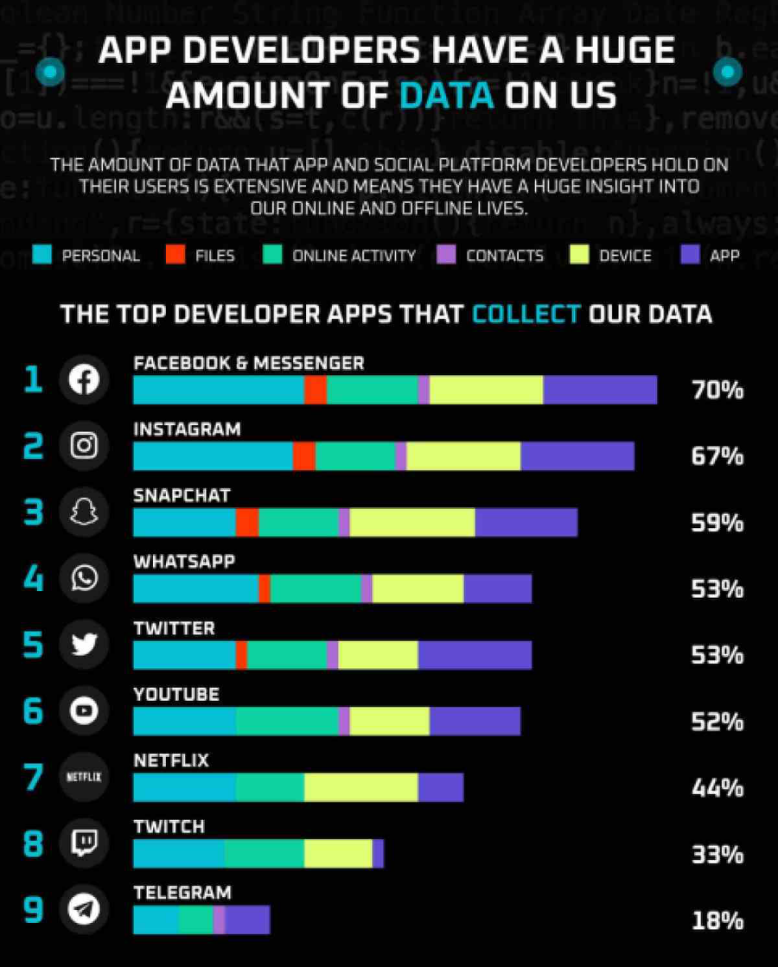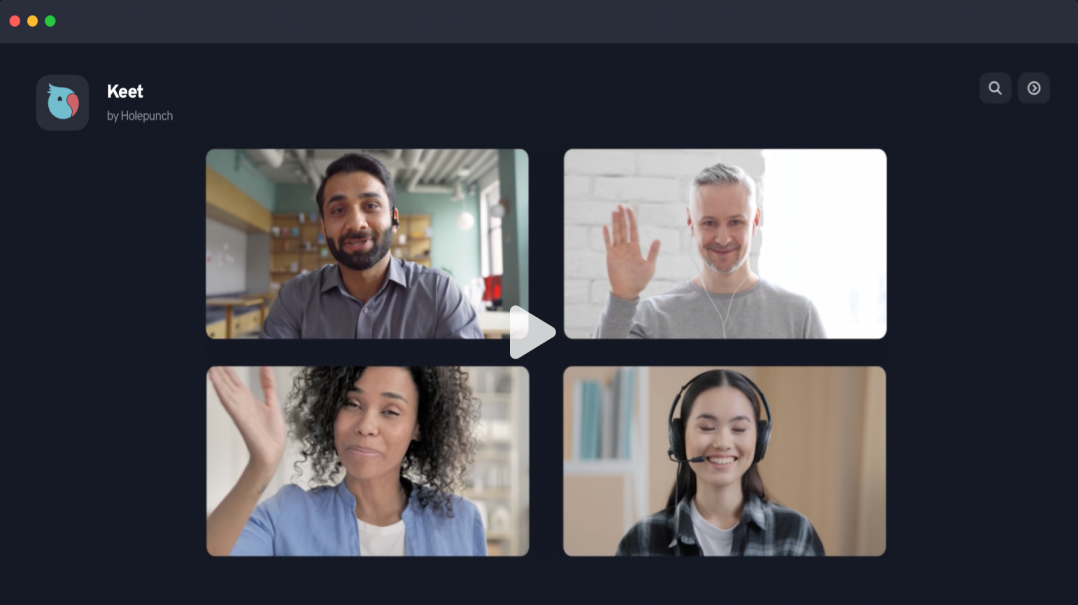On May 22, Facebook owner Meta Platforms (META) was fined $1.3 billion by EU privacy regulators for sending user information to the United States, the largest such fine ever imposed in the EU. This is not the first time that Internet giants have been fined for user data privacy issues. Google’s parent company Alphabet, Apple and Amazon have all collected user data without user consent and illegally shared user data with advertisers in the past.
In 2022 alone, the combined fines of these Internet giants will exceed 2 billion euros (about 15.2 billion yuan). The same situation also happened in China, where ride-hailing giant Didi was fined 8 billion yuan for illegally collecting user data.
Similar incidents have occurred repeatedly, and the amount of fines has repeatedly hit new highs, which shows that users and regulators do not attach more importance to data privacy than they used to. According to a survey by Userlike, most communication software users believe that message privacy is very important, and more than one-third of users will stop using a communication software due to data or privacy security issues.
These concerns are not unfounded, because most mobile apps collect information through users' private conversations without users' knowledge.
image description

Image credit: TechShiedler
Even WhatsApp, which offers end-to-end encrypted conversations, was fined. In response to user needs and market trends, in recent years, the market has also begun to launch chat software that focuses on privacy and data security, such as Signal, but the encrypted chat software market is still a blue ocean, especially the blockchain circle with its own privacy attributes. Chat software focusing on security and privacy has been introduced, but the most eye-catching one is the P2P encrypted chat software Keet launched by the stable currency USDT company Tether, the old exchanges Bitfinex and Hypercore earlier this year.
Unlike Signal, Keet has gone a step further in terms of encryption technology and application scenarios.
l Decentralized architecture: Keet uses a peer-to-peer (P2P) architecture that allows direct communication between users without relying on a central server. This decentralized approach enhances privacy and reduces the risk of a single point of failure or data breach. In contrast, Signal uses a client-server model, with messages passing through Signal's servers, which could raise concerns about data privacy.
l Distributed positioning technology: Keet uses self-developed distributed positioning technology to establish connections between users on real home and office networks. This technology eliminates the need for port forwarding and NAT traversal, resulting in smoother and more reliable communications. Signal, on the other hand, may experience connection issues in certain network configurations.
l Full end-to-end encryption: Both Keet and Signal offer end-to-end encryption, ensuring that only the sender and receiver can access the message content. This encryption provides a high level of security and prevents unauthorized access. However, Keet went a step further and implemented Blind Mirror, allowing peers to host fully encrypted live copies of chatrooms while maintaining data privacy.
l Point-to-point payment integration: Keet integrates point-to-point payments including Bitcoin and USDT. This allows users to monetize their content directly to their audience without going through other third parties (eg: Google Adwords, etc.) and securely transact directly within the app. Signal does not currently offer built-in payments.
Compared with traditional centralized chat software, because Keet directly connects devices between users through Peer to Peer technology, it realizes decentralized communication. According to a report published by Juniper Research, decentralized messaging software has advantages in avoiding central server failures and providing faster communication. Mainstream software such as WeChat and WhatsApp use intermediate servers as a bridge for information transmission, which may cause delays and instability in information transmission. In contrast, Keet achieves real-time and efficient communication directly through peer-to-peer connections, without the interference of intermediate servers. This direct connection mode eliminates intermediate links, making communication faster and more reliable.

Therefore, when users use Keet, they will find that whether it is voice calls, video calls or transferring large files, the speed is faster than traditional centralized chat software.
But Keet's ambitions are not limited to this. Its development team Holepunch said, "We have never regarded ourselves as a P2P chat software, but the best chat software!" This is reflected in Keet's smooth user experience, such as When uploading and accessing large files, users can directly access files at the other end without going through an intermediate server, which is very fast.
According to Holepunch, Keet is still in Alpha version, and the test (Beta) version will be launched soon. The beta runs on a new chat engine called Big Rooms, which allows thousands of users to chat end-to-end in the same chat room, including emoji and moderator features and more.
Additionally, Keet will implement mirroring capabilities on the Big Rooms engine. Blind mirroring allows any node to host a fully encrypted live copy of a chat room. Through mirroring, users can have a completely private chat room and transmit the real-time status of the chat room offline to other nodes in the network without losing privacy protection. This is especially exciting for Keet Mobile, as it can host mobile chat rooms to other Keet nodes, making it easy to create mobile-only chat rooms.
In the long river of technological development, each paradigm shift will bring a new ecology and user habits, and short video software gradually disintegrates news media and games. And what can subvert the carriage is definitely not another bigger and better carriage, but an unprecedented innovation. The existing mainstream communication software will definitely not disappear in the future. Only the users who decide to get back the privacy and data rights can subvert the communication software giants. Like Keet, the rights of "communication" and "privacy" are returned to use again. Or, and the communication software with the ultimate user experience is gradually digging deeper into the moat.